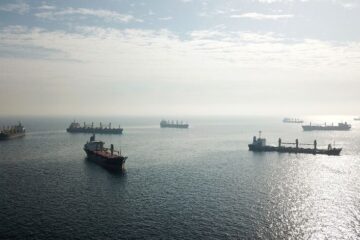Denmark votes in close election
Polls opened in Denmark on Thursday in an election that was too close to call, after a three-week campaign focusing on immigration and the economy.
Politicians of all stripes campaigned until the last minute amid speculation that the outcome of the race could be decided in Denmark\’s two former colonies, the Faroe Islands and Greenland.
The campaign has been dominated by three main subjects: the economy, the future of the country\’s cherished cradle-to-grave welfare state, and immigration and the rising cost of hosting asylum seekers.
Inside Copenhagen\’s central station on Thursday morning, party leaders took part in a live TV broadcast, handing out flyers and balloons to selfie-snapping commuters as they stepped off the set.
A teenage girl of immigrant origin giggled after taking a picture of herself and the leader of the anti-immigration Danish People\’s Party (DPP), Kristian Thulesen Dahl.
"There haven’t just been a few big things throughout the campaign, there have been discussions about many different things," Thulesen Dahl told AFP.
The party is expected to garner around 18 percent of the vote but has yet to say if it would join a future government, should the right-wing bloc win.
"We\’re just going to be where we get the most influence. And if that\’s in government, it\’s in government, and if it\’s outside government it\’s outside government," he said.
The election campaign has seen Social Democratic Prime Minister Helle Thorning-Schmidt make a comeback in opinion polls, buoyed by an economic recovery.
On the eve of the vote, she again questioned plans by her right-wing rival, Lars Lokke Rasmussen of the Venstre Party, to freeze public spending.
"We can afford to have a … society where we take care of each other," she said.
A weighted average of polls by the daily Berlingske on Wednesday showed the ruling centre-left bloc garnering 49.3 percent of the vote with 50.7 percent for the opposition coalition.
Polls showed around one in five voters still undecided.
Rasmussen, who headed the government between 2009 and 2011, has accused Thorning-Schmidt of negative campaigning and of taking credit for reforms introduced by his administration.
"The Social Democrats\’ campaign has been almost exclusively about me and Venstre," he told journalists.
Thorning-Schmidt\’s approval ratings had been stuck in the doldrums for most of her four-year tenure as the economy dipped in and out of recession and her centre-left coalition implemented policies viewed as right-wing, including welfare cuts and corporate tax reductions.
But she has rebounded in opinion polls since calling the election three weeks as economic growth returned — growth is expected to reach 1.7 percent this year — and after taking a tough stance on immigration to win over voters from the DPP.
Unusually for a Social Democrat, the 48-year-old premier campaigned on the slogan "If you come to Denmark you should work". Her government has also introduced temporary residence permits for refugees, as part of its efforts to stem an influx of asylum seekers.
Denmark received nearly 15,000 asylum seekers last year, almost twice the number it received in 2013, as more people fled conflict and hardship in Africa and the Middle East to Europe.
Rasmussen would need the support of the DPP in parliament to govern and has said he would cut back the number of asylum seekers by slashing benefits for new immigrants and by making it harder to obtain permanent residency.
However, his popularity has taken a knock from a string of minor scandals.
Political observers say the DPP is unlikely to join a right-wing government, preferring instead to back a minority government in return for its support on some key issues.
More eurosceptic than its allies, the DPP backs British efforts to make it harder for Europeans to claim benefits in EU nations other than their own.
SOURCE: AFP
[do_widget_area inner_adsbar]









